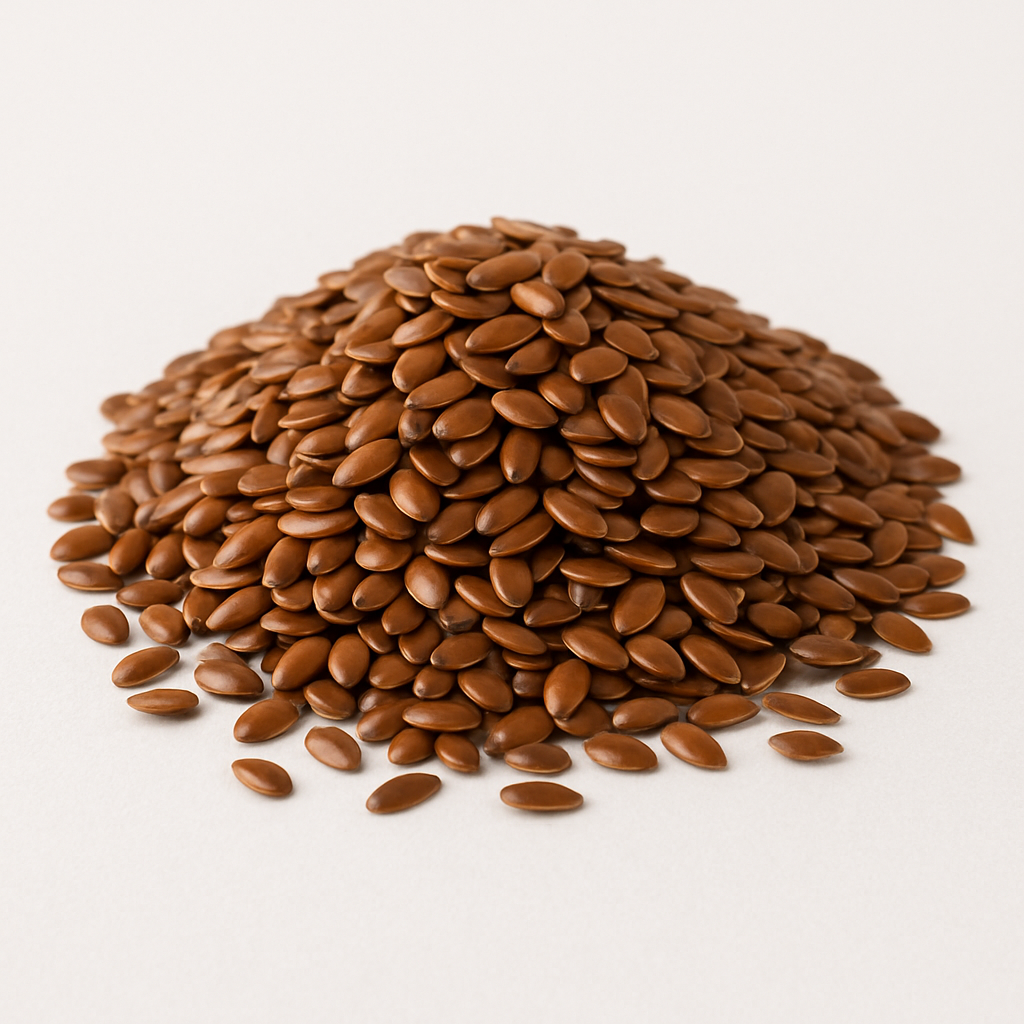Wadi
Flaxseeds
Flaxseeds
Couldn't load pickup availability
not technically a nut, but often considered one due to their nutritional profile.
Primary Uses:
1. Culinary uses:
- Baking: Flaxseeds can be ground into a fine powder and used as a substitute for eggs in baking recipes.
- Smoothies: Flaxseeds can be added to smoothies for a boost of fiber and omega-3 fatty acids.
- Salad toppings: Flaxseeds can be sprinkled on top of salads for added crunch and nutrition.
2. Flavoring uses:
- Oatmeal: Flaxseeds can be added to oatmeal for a nutty flavor and added nutrition.
- Yogurt: Flaxseeds can be mixed into yogurt for a crunchy texture and added health benefits.
- Granola: Flaxseeds can be added to homemade granola for a nutty flavor and added nutrition.
3. Aroma uses:
- None. Flaxseeds do not have a distinct aroma.
Other Uses:
1. Medicinal uses: Flaxseeds are rich in omega-3 fatty acids, lignans, and fiber, which have been linked to various health benefits such as reducing inflammation, improving heart health, and promoting digestive health.
2. Culinary uses: Flaxseeds can be used in a variety of dishes, such as smoothies, baked goods, and salads, to add a nutty flavor and a crunchy texture.
3. Ornamental uses: Flaxseeds can be used in floral arrangements and crafts as a natural decorative element.
4. Folklore uses: Flaxseeds have been used in traditional medicine and folklore to treat various ailments such as constipation, coughs, and skin conditions.
5. Religious uses: Flaxseeds are sometimes used in religious ceremonies and rituals in certain cultures.
6. Insect repellent: Flaxseeds contain compounds that are believed to repel insects, and can be used as a natural insect repellent.
7. Dyeing agent: Flaxseeds can be used to create natural dyes for fabrics and other materials.
Caution:
1. High in calories: Flaxseeds are high in calories, which can lead to weight gain if consumed in excess.
2. Digestive issues: Flaxseeds contain a high amount of fiber, which can cause digestive issues such as bloating, gas, and diarrhea if consumed in large amounts.
3. Allergic reactions: Some people may be allergic to flaxseeds, which can cause symptoms such as hives, itching, and difficulty breathing.
4. Interference with medication: Flaxseeds can interfere with the absorption of certain medications, such as blood thinners and cholesterol-lowering drugs.
5. Oxidation: Flaxseeds contain a high amount of unsaturated fats, which can oxidize and become rancid if not stored properly.
6. Not suitable for everyone: Flaxseeds are not suitable for everyone, especially pregnant women, breastfeeding mothers, and people with certain medical conditions such as thyroid disorders.
7. Nutrient deficiencies: Flaxseeds contain phytic acid, which can bind to minerals such as iron, zinc, and calcium, making them less available for absorption by the body.
Share


